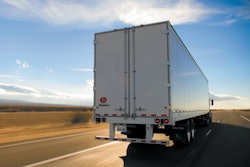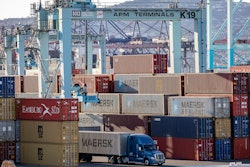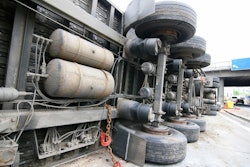The Truck Trailer Manufacturers Association won an appeal in the U.S. Court of Appeals for the D.C. Circuit that removes trailers from emissions requirements enacted in 2016.
The Environmental Protection Agency and National Highway Traffic Safety Administration’s Phase 2 Greenhouse Gas Emissions and Fuel Efficiency Standards for Medium- and Heavy-Duty Engines and Vehicles was the first rulemaking to put emissions standards on trailers. The standards would have required trailer manufacturers to adopt some combination of fuel-saving technologies, such as aerodynamic side skirts, automatic tire inflation systems and more.
A three-judge panel agreed that EPA lacked authority to regulate trailers under the Clean Air Act, and two of the three judges agreed that NHTSA’s authority also did not cover trailers in this context.
TTMA said it's pleased with the court's opinion and believes the decision to add equipment to trailers should be left up to the trucking companies themselves.
“We are pleased that the court saw the errors in the rulemaking from EPA and NHTSA,” said Jeff Sims, TTMA President. “This puts the decision making in the hands of the people that understand their operations best – the motor carriers. Each motor carrier can now choose ultimately what equipment will or will not benefit from fuel saving devices in the context of their specific operations. You could have two fully outfitted trailers, for example, one being used in highway over-the-road service, and it will gain fuel efficiency from the devices, while the other trailer being used in city pick-up and delivery, and it will not gain any efficiencies in fuel economy and in fact, with the added weight, will use more fuel.”
Sims added that his organization supports efforts to reduce GHG emissions but contends the Phase 2 regulations were not the best way to do so.
“TTMA members have always shared the same goals as the motor carrier industry and federal and state regulators to reduce GHG emissions and save fuel, but there is a better way to accomplish this than what EPA and NHTSA had mandated,” he said. “We remain open to sensible rulemaking mirrored after the very successful voluntary EPA Smartway Program that has in effect for over a decade now.”










